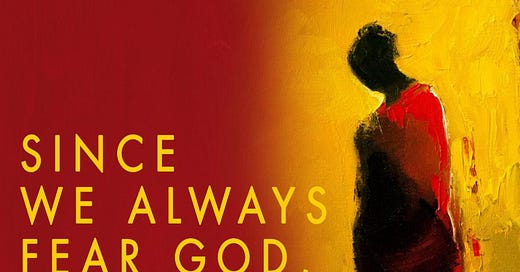Book Review: Defiant: What the Women of Exodus Teach Us About Freedom
I’ve never written a book, so I can only speculate on the timeline it takes to finish one. But I can say with a measure of confidence that I bet Kelley Nikondeha never imagined that her book, Defiant: What the Women of Exodus Teach Us About Freedom, would launch in the midst of a worldwide pandemic. Nevertheless, the book is very much needed during these difficult times.
Defiant explores the book of Exodus from the eyes of twelve women, who in the actual Biblical text are often passed over without a second glance. People of faith talk about the Biblical text as living and breathing. But let’s be honest, growing up in a society where we are saturated with Biblical stories often leads to a reduction of the Biblical text to a static, two-dimensional book.
Even worse, the Biblical text has historically and into the present day been used to justify oppression against various segments of society: women, Black people, Indigenous people, members of the LGBTQ community etc. But Nikondeha’s book serves as a reminder of the liberating power of the Biblical text. By using “theological/prophetic imagination” Nikondeha centers the voices and experiences of women whose names may not even be mentioned in the Biblical text, but who were courageous advocates for justice.
While I think all of the chapters provide necessary lessons and stories, I think in the time of COVID-19 that Chapter 9: The Nile Network: Freedom through Neighborliness, is particularly instructive. Now, during this time period physically meeting with our neighbors is discouraged and may even place them in danger. However, physical distancing does not negate our responsibility to advocate for and work with the most vulnerable of our neighbors.
One thing I appreciate about the book in general, and specifically this chapter is that while Nikondeha provides specific names and examples of women doing justice work, the effort is never an individual one. There are no singular saviors. (Even when talking about Jesus, Nikondeha makes sure to emphasize the vital role that Mary played as Jesus grew into his role as Messiah). Community matters. And in a society where politicians are literally saying that some lives are expendable and should be sacrificed at the altar of wall street and the free market, it is now more important than ever for us to take care of our neighbors: our sick neighbors, our homeless neighbors, our elderly neighbors.
In Chapter 9 Nikondeha provides a powerful retelling of the story of the Egyptians giving the newly freed Jewish people their jewelry, gold, etc. I, like many people, interpreted that act as one of coercion. The Egyptians just lost their first-born children and wanted the Hebrew people to get the hell out of Egypt and were willing to do whatever it took to get them out.
But Nikondeha presents a different interpretation: yes, while, Pharaoh’s decision to free the Hebrews was coerced, perhaps everyday Egyptians were motivated to give not necessarily out of fear or hatred, but out of relationship. What if the Hebrews, especially the women, had cultivated relationships with their Egyptian counterparts and when the time came the Egyptians willingly paid the Hebrews what was owed? What if the jewelry, gold, etc. were given not because of violence or coercion but because of loving relationships?
Nikondeha, of course, points out how reparations and giving back what is owed can feel like a form of violence to those used to having it all. But neighborliness can neutralize the need for physical violence.
What does this have to do with today’s struggles and COVID-19? Well, crises can bring out the best…and worst in people. And I’m sure most of us have been witnesses to some of the worst humanity has to offer: people hoarding food and materials with little regard for their poor and elderly neighbors, politicians calling for the deaths of those viewed as disposable in order to protect our economic system (which in reality only benefits a few to begin with), people disregarding orders to stay at home to go on spring break or to continue partying with little disregard for those who have to go to work and those with weak immune system. America’s emphasis on individualism over caring for our neighbors has contributed to the crisis we see now.
Yet along with great acts of selfishness there have also been incredible acts of kindness. Some people have used this time of physical distancing to find creative ways to care for their more vulnerable neighbors. Some people are running errands, calling those who live alone, and pushing back against the greed and selfishness of politicians. Many are pointing out that as scary as times are-we can get through it but only if we work together.
Many of the women chronicled in Nikondeha’s book, both the Biblical characters and modern-day women, understood the necessity of working towards a more just world for all. These women pushed back against the dominant impulses to care only about themselves: they risked their livelihood and sometimes their very lives to push back against oppression. They recognized that the current way of doing things was killing an untold number of people. And they claimed another, better world was possible.
In a world where most of us are afraid-afraid of getting COVID-19, afraid of our loved ones getting it, afraid of losing our jobs, afraid of important events being canceled: we desperately need Nikondeha’s insistence that a better world is possible if we listen to those most typically ignored, such as women, and if we work together.



